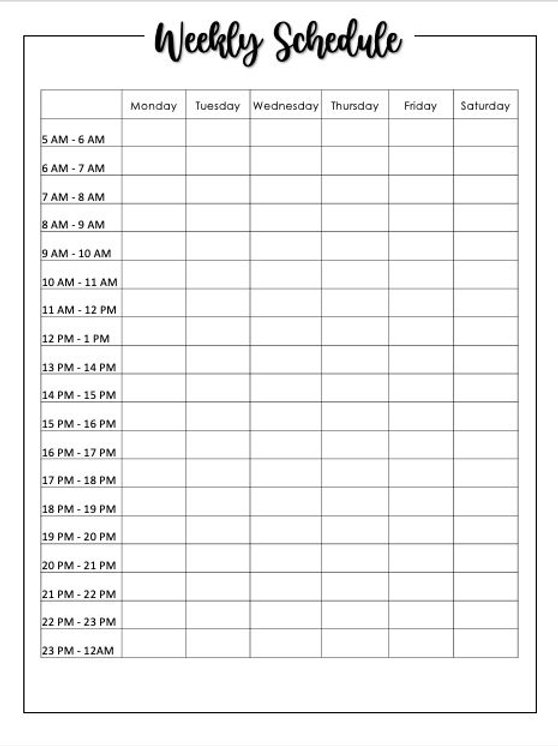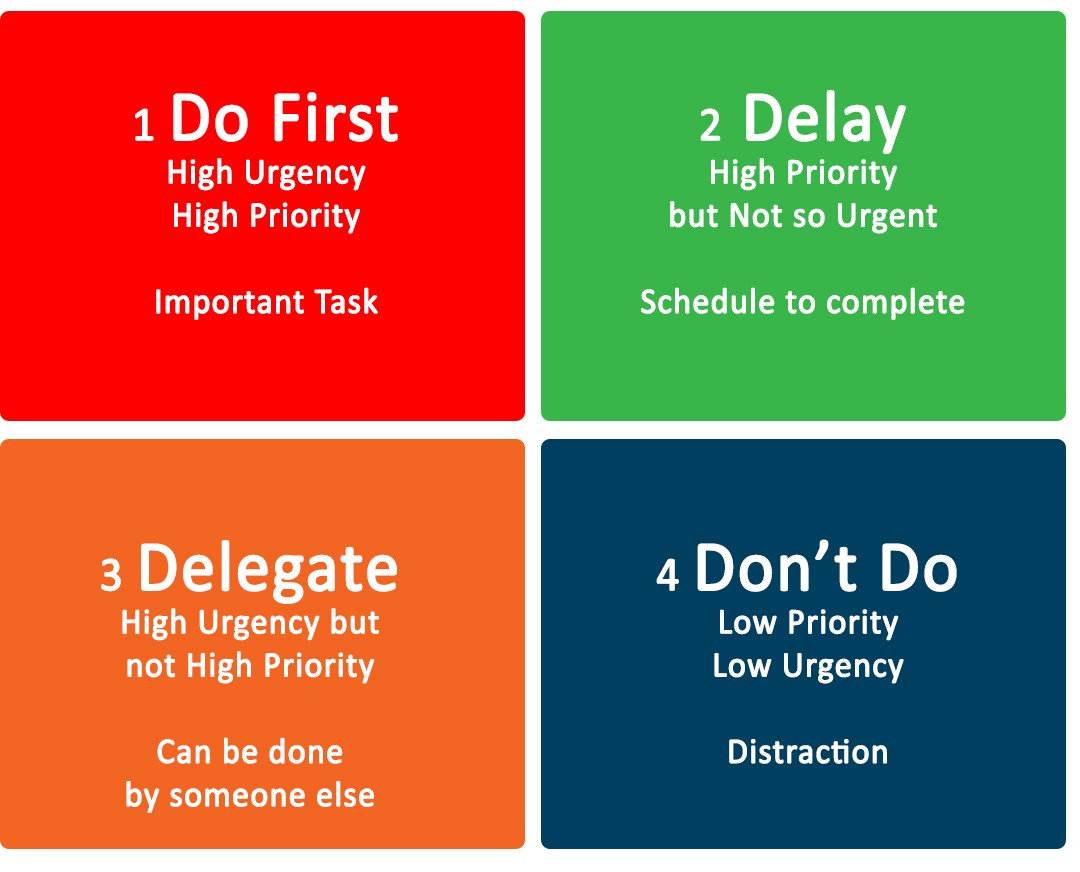Balancing work and study is a common struggle faced by many high school and college students every day. Managing academic commitments alongside part-time jobs or internships can be a significant challenge that often leads to feelings of overwhelm and stress. Nevertheless, by employing effective strategies and taking a proactive stance, students can handle these demands and excel in both areas.
 Time management is crucial in successfully juggling work and study responsibilities. Students can ensure they meet their obligations without compromising quality by creating a structured schedule that dedicates specific time slots to academic pursuits and work duties. Establishing clear priorities and realistic goals can also help them maintain focus and stay on course amidst a busy schedule.
Time management is crucial in successfully juggling work and study responsibilities. Students can ensure they meet their obligations without compromising quality by creating a structured schedule that dedicates specific time slots to academic pursuits and work duties. Establishing clear priorities and realistic goals can also help them maintain focus and stay on course amidst a busy schedule.
Maintaining a healthy work-life balance is vital for overall well-being and academic achievement. Students must make time for relaxation, socializing, and self-care activities to prevent burnout and preserve mental clarity. Engaging in hobbies, exercising, or taking short breaks throughout the day can significantly reduce stress levels and boost productivity.
While balancing work and study may appear challenging, it is certainly manageable with the right mindset and approach. By implementing practical advice such as effective time management, prioritizing tasks, and nurturing a healthy work-life balance, students can navigate their academic and professional pursuits with confidence and success.
The Importance of Time Management
Effective time management is crucial for balancing work and study. Without it, students may find themselves constantly stressed, unable to meet deadlines, and falling behind in both their academic and professional responsibilities.
 Time management is a skill that plays a critical role in the success of individuals in various aspects of their lives. Particularly for students, mastering time management is essential for juggling the demands of academic pursuits and other commitments.
Time management is a skill that plays a critical role in the success of individuals in various aspects of their lives. Particularly for students, mastering time management is essential for juggling the demands of academic pursuits and other commitments.
One of the key benefits of effective time management is the ability to prioritize tasks efficiently. By allocating time to different activities based on their importance and urgency, students can ensure that they are making progress towards their goals without feeling overwhelmed. This approach not only helps in meeting deadlines but also allows for a more balanced and fulfilling lifestyle.
Moreover, good time management fosters a sense of discipline and self-control. It requires individuals to make conscious decisions about how they spend their time, encouraging them to avoid procrastination and stay focused on their objectives. This discipline not only enhances productivity but also cultivates a sense of responsibility and accountability.
Time management can significantly reduce stress levels. When students have a clear plan in place and can manage their time effectively, they are less likely to feel overwhelmed by the demands of their workload. This, in turn, can lead to improved mental well-being and a greater sense of confidence in one's abilities.
In conclusion, the importance of time management cannot be overstated. By honing this skill, students can enhance their academic performance, reduce stress, and develop valuable habits that will benefit them throughout their lives. It is a fundamental aspect of success in both academic and professional settings, and mastering it is a key step toward achieving one's goals and aspirations.
Create a Schedule
When it comes to time management, creating a detailed schedule is key to staying organized and productive. Start by assessing your commitments, whether they are classes, work shifts, study sessions, or personal activities, and allocate specific time slots for each. Utilize a planner or a digital calendar to visually map out your day, week, or even month, ensuring that no task or deadline slips through the cracks.
 It is crucial to be realistic about the time you allocate for each activity. Consider factors such as the complexity of the task, your focus and energy levels at different times of the day, and any potential interruptions. By accurately estimating the time needed for each task, you can prevent the common pitfall of overloading your schedule, which can lead to stress and burnout.
It is crucial to be realistic about the time you allocate for each activity. Consider factors such as the complexity of the task, your focus and energy levels at different times of the day, and any potential interruptions. By accurately estimating the time needed for each task, you can prevent the common pitfall of overloading your schedule, which can lead to stress and burnout.
A well-structured schedule not only helps you manage your time effectively but also allows for flexibility and adaptability. Leave room for unexpected events or emergencies by incorporating buffer time between activities. This buffer time can serve as a cushion for delays or provide a breather between back-to-back tasks, promoting a more balanced and sustainable approach to time management.
Remember, a schedule is a tool to assist you in achieving your goals and maximizing your productivity. Regularly review and adjust your schedule as needed to optimize your time usage and ensure that you are making progress toward your objectives. With a clear and thoughtfully crafted schedule in place, you can navigate your daily responsibilities with confidence and efficiency.
Prioritize Tasks
Not all tasks carry the same weight or impact on your overall goals. By implementing a structured prioritization system, such as the renowned Eisenhower Matrix, you can streamline your workflow and maximize your productivity.
 The Eisenhower Matrix, also known as the Urgent-Important Matrix, provides a clear framework for categorizing tasks based on their urgency and importance. Tasks are divided into four quadrants: urgent and important, important but not urgent, urgent but not important, and neither urgent nor important. This method allows you to identify which tasks require immediate attention and which can be deferred or delegated.
The Eisenhower Matrix, also known as the Urgent-Important Matrix, provides a clear framework for categorizing tasks based on their urgency and importance. Tasks are divided into four quadrants: urgent and important, important but not urgent, urgent but not important, and neither urgent nor important. This method allows you to identify which tasks require immediate attention and which can be deferred or delegated.
By focusing on high-priority tasks that fall into the urgent and important quadrant, you can ensure that you are addressing critical issues first and making significant progress toward your objectives. This strategic approach helps you allocate your time and energy efficiently, leading to increased productivity and better results.
Moreover, prioritizing tasks enables you to maintain a clear perspective on your workload and avoid feeling overwhelmed by a long list of to-dos. It allows you to break down complex projects into manageable steps and tackle them systematically, fostering a sense of accomplishment and motivation.
Avoid Multitasking
Despite the common belief that multitasking is a valuable skill, research shows that it can actually hinder your productivity and increase stress levels. When you try to juggle multiple tasks simultaneously, your brain has to constantly switch between them, leading to a decrease in efficiency and a higher likelihood of making mistakes.
 By focusing on one task at a time, you can give it your full attention and energy, allowing you to work more effectively and produce higher-quality results. This approach not only helps you complete tasks more efficiently but also reduces the mental strain associated with trying to do too much at once.
By focusing on one task at a time, you can give it your full attention and energy, allowing you to work more effectively and produce higher-quality results. This approach not only helps you complete tasks more efficiently but also reduces the mental strain associated with trying to do too much at once.
Dedicating your attention to a single task enables you to enter a state of flow, where you are fully immersed in the activity and experience a sense of deep focus and satisfaction. This can lead to increased creativity, better problem-solving skills, and a greater sense of accomplishment when you successfully complete the task.
So, next time you feel tempted to multitask, remember that focusing on one task at a time is the key to improving your productivity, reducing stress, and achieving better results in the long run.
Setting Priorities
Balancing work and study requires a clear understanding of your priorities. Identifying what truly matters to you allows you to make informed choices that align with your values and goals.
 By establishing clear priorities, you can effectively manage your time and resources, focusing on tasks and activities that contribute the most to your overall well-being and success. This deliberate approach enables you to avoid feeling overwhelmed or scattered, as you have a roadmap to follow.
By establishing clear priorities, you can effectively manage your time and resources, focusing on tasks and activities that contribute the most to your overall well-being and success. This deliberate approach enables you to avoid feeling overwhelmed or scattered, as you have a roadmap to follow.
Moreover, understanding your priorities helps you differentiate between urgent and important matters, allowing you to allocate your efforts accordingly. This distinction empowers you to address critical tasks promptly while also making progress towards your long-term objectives.
In essence, setting priorities is not just about organizing your schedule; it is about cultivating a mindset that values purposeful action and strategic decision-making. When you are clear on your priorities, you can navigate the demands of work and study with confidence and efficiency, ultimately leading to a more fulfilling and balanced life.
Define Your Goals
Start by defining your short-term and long-term goals. By defining what you aim to achieve academically and professionally, you create a roadmap that guides your actions and decisions. Understanding your aspirations not only provides clarity but also acts as a source of motivation during challenging times.
 Short-term goals are the stepping stones that lead you toward your long-term objectives. They can include specific milestones you want to accomplish in the near future, such as completing a course, gaining a particular skill, or securing an internship. On the other hand, long-term goals are the overarching achievements that you aspire to reach over an extended period, like obtaining a degree, landing your dream job, or starting your own business.
Short-term goals are the stepping stones that lead you toward your long-term objectives. They can include specific milestones you want to accomplish in the near future, such as completing a course, gaining a particular skill, or securing an internship. On the other hand, long-term goals are the overarching achievements that you aspire to reach over an extended period, like obtaining a degree, landing your dream job, or starting your own business.
By having a well-defined set of goals, you can prioritize your tasks, allocate your resources efficiently, and measure your progress effectively. This structured approach not only enhances your productivity but also instills a sense of purpose in everything you do. Remember, the journey toward your goals may not always be smooth, but maintaining a clear vision of what you want to accomplish will help you navigate challenges and setbacks with resilience and determination.
Be Flexible
Flexibility is a key trait to navigate the unpredictable journey of life. Having a plan is essential, but being adaptable is equally important. Embracing flexibility allows you to respond effectively to unexpected challenges and opportunities that may arise along the way. It enables you to adjust your priorities, schedule, and goals as needed, ensuring that you can make the most out of any situation.
 By being open to change and willing to modify your plans when necessary, you demonstrate resilience and a growth mindset. It's important to remember that setbacks and deviations from your initial plan are not failures but opportunities for learning and growth. Embrace the uncertainty of life with a positive attitude, knowing that flexibility is a strength that will help you overcome obstacles and thrive in any circumstances.
By being open to change and willing to modify your plans when necessary, you demonstrate resilience and a growth mindset. It's important to remember that setbacks and deviations from your initial plan are not failures but opportunities for learning and growth. Embrace the uncertainty of life with a positive attitude, knowing that flexibility is a strength that will help you overcome obstacles and thrive in any circumstances.
So, while it's crucial to set goals and make plans, remember to leave room for flexibility. Allow yourself the freedom to adapt, evolve, and explore new possibilities. By being flexible, you empower yourself to navigate life's twists and turns with grace and confidence, ultimately leading to personal development and fulfillment.
Maintaining a Healthy Work-Life Balance
A healthy work-life balance is essential for individuals to lead a fulfilling and productive life. Achieving this balance involves effectively managing your time and energy between work responsibilities and personal life commitments. By prioritizing a healthy work-life balance, you can prevent burnout and maintain your overall well-being.
One of the key benefits of maintaining a healthy work-life balance is that it reduces stress levels. When you allocate time for both work and personal activities, you can prevent the overwhelming feeling of being constantly under pressure. This, in turn, helps you stay focused and productive in your work while also enjoying your personal life without feeling guilty or stressed.
Furthermore, a healthy work-life balance ensures that you have time for self-care activities. Taking care of your physical, mental, and emotional well-being is essential for maintaining a balanced and fulfilling life. Whether it's exercising, meditating, spending time with loved ones, or pursuing hobbies, dedicating time for self-care allows you to recharge and rejuvenate, ultimately improving your overall quality of life.
In addition to preventing burnout and reducing stress, a healthy work-life balance also promotes better relationships with those around you. When you prioritize spending time with family and friends, you strengthen your connections and create meaningful memories that contribute to your happiness and well-being.
Maintaining a healthy work-life balance is not only beneficial for your own well-being but also for your relationships and overall quality of life. By consciously making time for work, personal activities, and self-care, you can lead a more fulfilling and balanced life.
Schedule Downtime
Make sure to schedule regular breaks and downtime into your routine. This could include time for hobbies, exercise, social activities, or simply relaxing. Taking breaks helps recharge your mind and body, making you more productive and focused when you return to work or study.
Practice Self-Care
Self-care is crucial for maintaining a healthy work-life balance. Ensure that you are getting enough sleep, eating nutritious meals, and staying active. Regular exercise, even if it's just a short walk, can boost your mood and energy levels.
Seek Support
Don’t hesitate to seek support from friends, family, or mentors. They can offer valuable advice, encouragement, and assistance when you need it. If you’re feeling overwhelmed, talking to someone can help you gain perspective and find solutions.
 Balancing work and study is undoubtedly challenging, but with effective time management, clear priorities, and a commitment to maintaining a healthy work-life balance, it is entirely possible to succeed in both areas. Remember to be patient with yourself and make adjustments as needed. By implementing these strategies, you can navigate the demands of work and study with confidence and achieve your goals.
Balancing work and study is undoubtedly challenging, but with effective time management, clear priorities, and a commitment to maintaining a healthy work-life balance, it is entirely possible to succeed in both areas. Remember to be patient with yourself and make adjustments as needed. By implementing these strategies, you can navigate the demands of work and study with confidence and achieve your goals.
